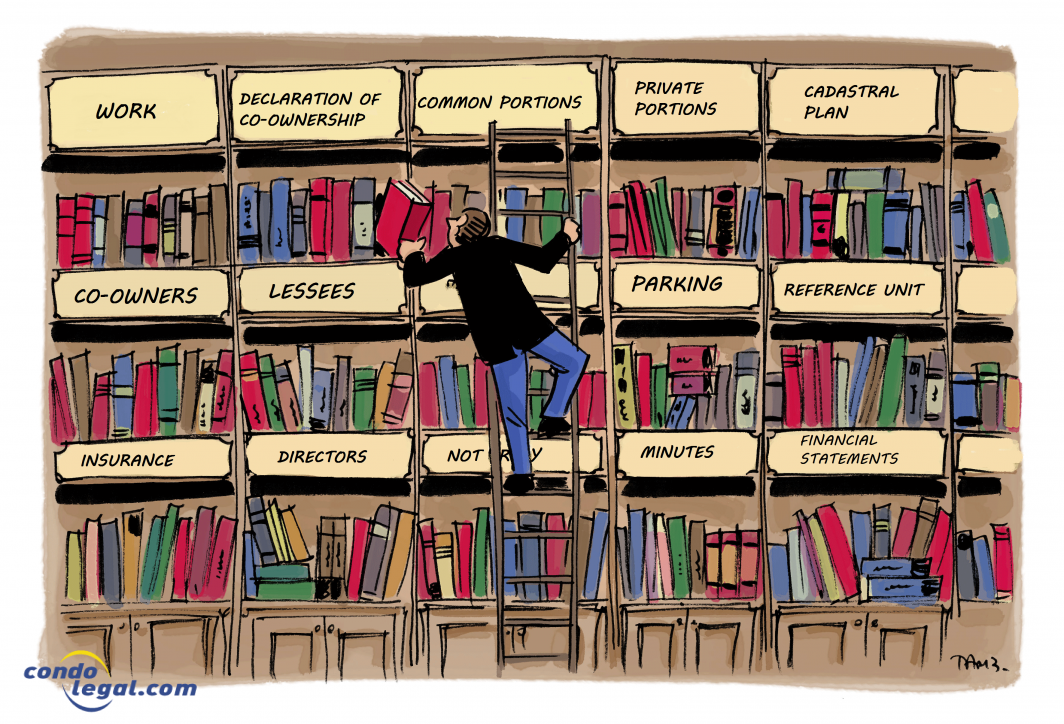 The co-ownership register is not merely an administrative tool; it is the heartbeat of property management. Beyond recording the names and addresses of co-owners, it must also include detailed information about tenants and other occupants. This data is essential for efficiently managing interactions with all residents and ensuring effective communication, especially during emergencies or significant events like repairs or inspections. It becomes a comprehensive coordination and prevention tool, indispensable to the smooth functioning of the co-ownership.
The co-ownership register is not merely an administrative tool; it is the heartbeat of property management. Beyond recording the names and addresses of co-owners, it must also include detailed information about tenants and other occupants. This data is essential for efficiently managing interactions with all residents and ensuring effective communication, especially during emergencies or significant events like repairs or inspections. It becomes a comprehensive coordination and prevention tool, indispensable to the smooth functioning of the co-ownership.
A critical update to prevent errors
The co-owners' register is a crucial legal document that must accurately list the names and addresses of all co-owners. Frequent errors in this register can have serious legal repercussions. During a general meeting, inaccurate information could invalidate decisions if unauthorized individuals participate. For instance, if individuals without formal co-owner status or valid proxies vote, the vote count becomes flawed, undermining the legitimacy of the resolutions and exposing the syndicate to legal challenges.
The need for an annual update
To avoid such situations, it is vital to update the register at least once a year. This task requires meticulousness and specific expertise, particularly in interpreting legal documents and accessing Quebec's Land Register. A thorough knowledge of legal principles is necessary to carry out this work effectively. It is a painstaking process demanding patience and precision.
The role of tenants in the register
While the register primarily records information about co-owners, it is equally important to include details about tenants.
Essential information on tenants
This information enables the syndicate to efficiently manage communications and responsibilities related to unit occupancy. The names, addresses, and contact details of tenants should be recorded to facilitate routine events, such as repairs or maintenance of common areas. Furthermore, in exceptional situations, like emergencies or major repairs, having an up-to-date list of tenants can prove critical.
The legal obligations of co-owner landlords
Article 1065 of the Civil Code of Quebec (C.c.Q.) requires co-owners who rent or lend their unit to notify the syndicate and provide the tenant's or occupant's name. However, more than just the tenant's name should be required. Their address, phone number, and an identification document to verify the accuracy of the information can also be requested. This ensures that tenants can be contacted easily, even after their occupancy period, if they have caused any damage. The co-ownership register should be structured to allow the recording of each tenant and occupant.
A management adapted to modern realities
It is essential for the syndicate to have more than just the tenant's name in its records. The tenant must be easily reachable in emergencies, such as water damage in a private unit. Email addresses should also be included to send residents important notices and communications.
Application of article 1057 C.c.Q.
Article 1057 C.c.Q. states that the building’s bylaws are binding on tenants or occupants of a private unit as soon as a copy of the bylaws or any amendments thereto is provided to them by the co-owner or, failing that, by the syndicate. Documenting the date on which the tenant or occupant received a copy of the bylaws is essential for the application of Article 1057 C.c.Q., which renders the bylaws enforceable upon receipt. The declaration of co-ownership often requires proof of delivery of this document rather than simply noting the date it was provided.
Harmonizing occupants
The declaration of co-ownership frequently obliges landlord co-owners to provide the syndicate with signed leases for their tenants, as well as any changes in tenants. This tracking helps foster better harmony among all the building’s occupants.
Professional Management for an Accurate Register
Engaging skilled professionals such as paralegals and lawyers specializing in co-ownership law is a wise decision. These experts ensure the register is kept in compliance with legal standards, avoiding costly errors for the syndicate.
At Dunton Rainville, we understand the importance of these issues and offer personalized support to help co-ownership syndicates maintain registers that meet legal requirements. Feel free to consult us for any questions related to the management of your co-ownership.
 ACKNOWLEDGEMENTS : This text was written with the collaboration of Yves Joli-Coeur, a lawyer in co-ownership law and a partner at the law firm Dunton Rainville.
ACKNOWLEDGEMENTS : This text was written with the collaboration of Yves Joli-Coeur, a lawyer in co-ownership law and a partner at the law firm Dunton Rainville.
 WARNING! The information in this column is of a general nature and does not in any way constitute legal advice or advice or reflect the state of the law exhaustively. The facts may vary from situation to situation. Consultation with a lawyer regarding your particular case may in certain circumstances be recommended.
WARNING! The information in this column is of a general nature and does not in any way constitute legal advice or advice or reflect the state of the law exhaustively. The facts may vary from situation to situation. Consultation with a lawyer regarding your particular case may in certain circumstances be recommended.
Hélène Joli-Coeur,
Paralegal
Dunton Rainville
3055 Boulevard Saint-Martin O
Bureau 610
Laval, QC H7T 0J3
Tél. : (450) 686-8683
Courriel : [email protected]
